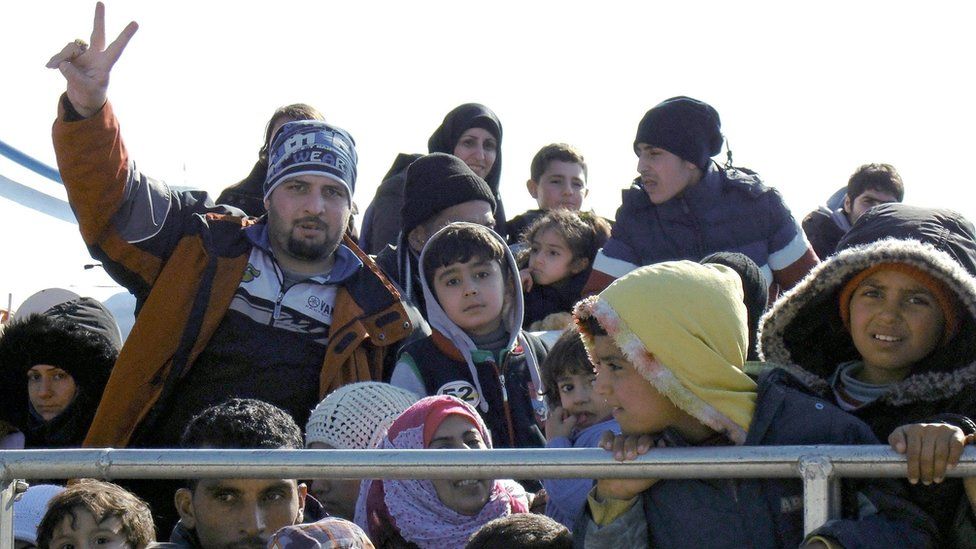Schengen zone: EU gives Greece deadline on borders
- Published

The European Union has given Greece three months to fix its border controls, in a move that could allow other Schengen zone states to maintain internal border controls.
Two weeks ago, a draft report found that Greece had "seriously neglected" its obligations to control the external frontier of the border-free zone.
Some EU states have re-imposed border controls on a temporary basis.
More than 850,000 migrants and refugees arrived in Greece last year.
Around 80,000 have already crossed from Turkey in 2016. On Thursday Nato announced it would deploy ships in the Aegean to deter people-smugglers operating there.
Most migrants want to travel through Greece and make their way to Germany and other countries in northern Europe.
Germany and other states have been critical of Greece's ability to stem the flow.
Article 26 of the Schengen Borders Code allows countries to keep temporary border controls in place for a maximum of two years, "in exceptional circumstances".
Analysis: Damian Grammaticas, BBC News, Brussels
The significance of this decision is that it prepares the ground for existing temporary border checks to be extended beyond May, when they are due to expire.
Borders within Europe's passport-free Schengen area are open, and most remain so. But a few nations, including Germany, Austria and Sweden have been allowed to put in place some controls at specific frontiers to deal with the refugee flows.
If, in May, the situation has not changed the EU could then, legally, give the green light to Schengen nations to maintain their own controls for up to two years.
The European Commission has made clear the move will not isolate Greece from the Schengen area or be about suspending Schengen, but will allow other countries to deal with the consequences of the problems Greece is having controlling its borders.
Where Europe is failing on migrants
- The 28 member states have not agreed on an EU-wide mechanism for relocating migrants, meant to ease the burden on Greece and Italy. Only small groups have been relocated so far - and several states in Central and Eastern Europe refuse to accept migrants
- The Schengen agreement on freedom of movement is in jeopardy - Hungary fenced off its borders with Serbia, Croatia and Slovenia; meanwhile Germany, Austria, Denmark, Sweden, Norway and France also reimposed border controls
- The Dublin regulation is not working effectively. Countries are no longer sending back migrants to their first point of entry to the EU
- Thousands of migrants - many of them Syrian war refugees - still arrive daily from Turkey
- Processing of asylum applications is slow and there is a big backlog, so reception centres are overcrowded
- Germany - the main destination for migrants - is rethinking its open-door policy, partly because of outrage over assaults on women in Cologne at New Year